- Home
- Adam Croft
In Too Deep (Knight & Culverhouse Book 5) Page 10
In Too Deep (Knight & Culverhouse Book 5) Read online
Page 10
‘Jack! Where are you? Was your flight delayed?’ came the answer once the call had connected.
Culverhouse exhaled. He wanted to cry. ‘Something like that. Listen, I won’t be coming out today. Something’s come up. Something important.’
‘More important?’ García asked.
Culverhouse never realised how quickly he could go from wanting to cry to wanting to rip someone’s head off. He found himself struggling for words. He wanted to tell Antonio that no, nothing was more important to him than his daughter. He wanted to tell him that he had no choice, that he was wedded to the job. He wanted to tell him that he’d done a stupid, terrible thing and that he should be on that plane right now and fuck the lot of them. But no words came.
‘Jack? What’s happened?’
He paused for a moment. ‘Nothing. Probably nothing. Can you just... Can you ask your man to hold tight? Keep an eye on them. See what you can find out. I’ll be there. I will. Just not today.’
He could almost hear García smiling at the other end of the phone. ‘Of course. Don’t worry.’
‘I mean, I’ll cover their costs. I’ll pay them. Whatever it is, I’ll pay it. Just... I can’t be there right now.’
‘Jack, don’t worry,’ García repeated. ‘And there is no cost. They owe me a favour, I told you. They owe me more than a favour, actually, but that’s another story for another day. Listen, I understand. There are hundreds of flights to Alicante. We won’t be going anywhere. When you are able to come out, come out.’
‘Thanks,’ Culverhouse replied, unable to say any more. He terminated the call.
The buildings and parked cars whizzed past the window as he gazed out, focusing on nothing much at all. He wasn’t thinking of much at all, either.
He gladly let his mind wander into nothingness, the noise of his thoughts fading into the background as he tried to let everything go.
29
I’ve got a headache. And that’s putting it lightly. The doctors say the painkillers will be taking the worst of it away, but it feels like it’s not even touching the sides. The medication just makes me feel drowsy. I don’t know how much of that is down to the barbiturates they had me on to keep me comatose, but all I know is I don’t feel like me.
I still feel detached, spaced out. Almost as if I’m watching this rather than taking part in it. It’s a very odd sensation, and not one I can accurately describe.
The doctors keep coming in and asking me odd questions. I can see what they’re doing — they’re testing my long-term and short-term memory. They’ll come in and ask me something, then have a chat, then ask me the same question again. They’ll ask me who the prime minister is, what year I was born, what their own names are. They’ll ask me to work out maths problems and to read charts of letters like they have at the optician’s.
That’s the hardest part for me. The letter charts. My vision’s still incredibly blurred. The doctors say there’s some swelling on the back of my brain, around the optic nerve. Papilledema, they call it. See. I remembered that.
There are definitely holes, though. Fortunately they’ve not been able to find them yet. I hope to keep it like that, so they’ll let me go home sooner rather than later.
John, for example. He’s here, next to me, most of the time. I hear his voice, and I can see him there, but not distinctly. My vision’s still too blurred. But the most disturbing thing is that I can’t remember his face.
When I first realised that, my heart sank. What if I never regain my vision? The doctors tell me I will. They assure me it’s just down to the swelling. The papilledema. But the fact that I can’t even visualise my own husband’s face from memory frightens the hell out of me. I remember the day we met, the day we married, the day our children were born. But I can’t remember his face. In every image, every memory reel I have in my mind, his face is the same indistinct blur of colour I see in front of me now. That terrifies me.
To be honest, this whole place scares me. I feel distinctly uncomfortable here, but I can’t put my finger on why. It’s probably because I’ve never liked hospitals. Horrible places. Who likes being in hospital? No-one. I want to get out, get back home, get back to work.
Work. There’s a word. It’s a huge, missing chunk. In my mind, I can visualise my study at home, the room where I do most of my work. At least I think I can visualise it. I can visualise most of my house, but there are bits missing. Then there are rooms that I’m certain exist but that don’t seem to fit in with the floor plan I remember. I know, for example, that I don’t have two living rooms. I know that instinctively, yet in my mind I see two, as clear as day.
My vision of my study is much clearer. Clearer than any other room. I can see it quite distinctly. The shelves of books, the filing cabinet, the desk. And I know I was working on something important. I’m always working on something important. What I do is important.
But that’s as far as I get.
The more I try to think of it, the fuzzier everything becomes. It’s like telling a naughty child to stop tapping their pencil on the side of the table. The more you tell them not to do it, the more they’re going to do it.
I try to let my brain relax. Try to think of other things. My children. Archie and Lola. I can see their faces as clear as day, smiling and beaming. I’ll never forget those faces. They’re everything. It seems as though I can remember every single day of their lives. It’s all there, crystal clear, brighter than anything.
Pevensey Park.
Those two words flash into my head like a bolt of lightning. I see them at the same time as I remember them, the words appearing in front of my eyes, as if on a computer screen. And then they disappear again.
In that moment, I realise their significance. I know how important they are. I know they’re the key to this whole thing. I just don’t know how or why.
Pevensey Park.
I try to say the words, but I don’t know if they’re leaving my lips. I can’t hear them.
Pevensey Park.
The confusion starts to swamp me again. I feel my heart racing, my breath quickening. I groan as I try to sit up in bed. I feel a hand on my arm, holding me back. I want to call out, want to scream but I can’t. I’m panicking.
My vision becomes more blurred. Colours appear, bright colours, flashes of light.
I don’t know how much time has passed.
I hear voices.
More voices. The words become more indistinct.
I hear a humming.
Everything fades to blue.
30
‘Well no, I wouldn’t necessarily describe it as normal, but it is certainly something I’ve seen happen before,’ Julian Mills said to Jack and Wendy outside the ward. Frank had been sent back to the office once Culverhouse had arrived, much to his chagrin. ‘This is what I warned you about. It might seem as though someone is recovering well, but the brain is extraordinarily delicate in these situations. Any sort of stress or agitation can result in massively increased brainwave activity, which in turn can cause an increase of pressure on the brain. After what Tanya’s already been through, it could be fatal.’
‘How much did the pressure increase?’ Wendy asked. ‘Was it dangerously high?’
‘It doesn’t increase immediately,’ the consultant replied. ‘It doesn’t take long for it to start, though, and with her levels of agitation and her increased heart rate and breathing, we weren’t going to take any risks. We increased the dose of barbiturates to keep her sedated and mitigate the chances of a recurrence of the brain swelling. I’m not in the business of putting my patients in danger, I’m afraid.’ Wendy could almost hear the doctor’s silent end to that sentence: “no matter how much you need her to talk.” He was probably annoyed at police officers getting in his way.
Wendy could feel her frustration starting to boil over. They had barely been off the ward for two or three minutes before returning to the news of Tanya’s regression. ‘Annoyed’ didn’t even cover it, but she was trying to b
ottle it up. By the time Wendy got even mildly frustrated, Culverhouse had usually blown his lid, but as she looked over at him, she saw him nodding slowly in acceptance of what the doctor was saying, calm as ever. She couldn’t even be completely certain he was listening. He just seemed dazed, not with it at all.
‘So we’re back at square one?’ Culverhouse asked, proving her wrong.
‘Well, I wouldn’t necessarily go that far,’ the consultant replied. ‘But it’s definitely a step backwards. Hopefully it’ll be a case of one step back, two steps forward, but what it does show is that Tanya’s nowhere near being at a point where we can consider her to be better. I’m afraid it all seems to be a bit much for her at the moment. She’s clearly in a very fragile state and was woken too soon. She needs time and space to recover, and the added pressure of a police presence is very unlikely to help,’ he added, almost reluctantly, making Wendy think her hunch was correct.
‘With all due respect, we need to find out who did this to her. This is looking like a case of attempted murder,’ she said.
Julian Mills sighed. ‘All I can say is that if you rush these things and put her under unnecessary strain, you certainly won’t have a case of attempted murder. You’ll have a case of murder. In which case, she won’t be able to tell you a thing. I’m sorry, but we could have come close to losing her in there. I don’t want that on my conscience and I’m fairly sure you don’t, either.’
‘But we need some form of police presence,’ Wendy said. ‘She’s a target for someone. Someone tried to kill her and there’s a good chance they’ll try again.’
‘Not in here, they won’t. We already have very good security. Listen, I’m happy for you to continue to station an officer outside the ward, but not somewhere she can see them. If she remains stabilised and we wake her up again, we don’t want her getting distressed. I’m happy for someone to be here for security purposes, but not for putting her under stress with questioning.’
Wendy nodded. ‘That’s fair enough. Is there anything else you can tell us?’
‘Such as?’
‘I don’t know. How long it might be before you can bring her round again? How long after that it’ll be before we can speak to her? Whether what happened in there earlier could cause any long-term damage?’
The consultant shrugged. ‘Who knows? Right now we’re back to playing the waiting game.’
Wendy sighed. She hated that game.
31
The evening light began to fade at about the same time as the large glass of whisky started to take the edge off Jack Culverhouse’s mood. It never rains, but it pours. That was never truer than it was in the case of CID officers. There were times when he’d go weeks, months perhaps, without anything juicier than a fraud case or a gang-related assault to get his teeth into. His personal life would be just as quiet, too, with little more than the regular nine to five followed by a few episodes of Breaking Bad in the evening.
But Jack had never been a nine to five sort of person, and as much as he liked Breaking Bad, he was far happier doing the job he loved. The overtime wasn’t as ubiquitous as it used to be, however, and he often found himself having to spend far too many evenings in his own company.
There were times when he didn’t mind that so much, but those times were few and far between. His problem had always been that he was a thinker — indeed, he’d been guilty on many occasions of overthinking things. One of the downsides of the job was that his brain had been trained to consider every possibility and to always expect the worst. Overanalysis of one’s personal life, though, was never ideal.
Try as he might, he couldn’t shake the regrets. He knew he had a reputation as a hard-nosed bastard, and it was a reputation he was happy to have, but even Jack Culverhouse had regrets. Plenty of them.
He took another large gulp of whisky, feeling the ice cube chill his upper lip before holding the glass in his hand and swirling the amber liquid around, watching the melting ice infuse with it, marbling the liquor.
He could easily get a cab to the airport and book himself on the next flight to Alicante. The local airport had three flights a day going out at this time of year, and another hour’s drive would open him up to a further three airports. But that wasn’t what was stopping him.
True enough, when he’d been in that queue at the airport he’d had every intention of getting on that plane. Emily came first, and that’s all there was to it. Then he’d received the phone call.
It was his reaction that had shocked him. His first instinct should’ve been to delegate, to tell them he’d be back in a couple of days and someone else would have to deal with it in the meantime. His daughter needed him. But that wasn’t his first instinct. Not at all. The first thought that had crossed his mind was to head back out through security and get a cab back to the office. It was second nature to him now; a nature he wasn’t sure how to break.
It wasn’t that he wanted to go back to the office. It wasn’t that he wanted to let Emily down again. It was the fact that it had been the first thing to cross his mind. His instinctive reaction. In that moment he’d realised that deep down he was still the same old Jack Culverhouse. That even if he went over to Spain, even if he got there and found out it was Emily, and even if she accepted him and became a part of his life again, he’d still find a way to let her down. He had just about learned to control his conscious reactions and thoughts, but he now realised that he couldn’t control his subconscious impulses. And for as long as that was true, he couldn’t trust himself.
He’d already blown it once, and he didn’t deserve a second chance. But, if he ever somehow managed to get one, he sure as hell wasn’t going to blow that too.
He’d never felt so disappointed in himself.
He thought about Tanya Henderson’s children, Archie and Lola. There was a decent chance they’d lose their mother. A woman who doted on her kids, who tried to give them the very best in life. A woman who dedicated her life not only to her children but to exposing some of the worst forms of corruption in our society.
And then he compared her to himself. A bloke who couldn’t even get home from work early enough to spend some time with his daughter. Who allowed his job to ride roughshod over his marriage and his family life. Who wouldn’t know what being a good parent meant if it was drawn out on a piece of paper in front of him. Who was, shamefully, still alive.
It shouldn’t be Tanya Henderson in that hospital bed, he thought. It should be him. Tanya Henderson should be at home with her kids, tucking them in and reading them a bedtime story. She deserved that. Her kids deserved that. And while she was lying there in that hospital bed, he had been getting ready to fly halfway across Europe on a whim to try and track down the daughter he didn’t deserve.
Not for the first time in his life, Jack Culverhouse realised there was no justice in the world.
32
The dawn of a new day often brought new hope, but that morning was different. The investigation seemed to be stalling again. The inquiries into the purchase of crowbars in the local area hadn’t thrown up anything particularly useful, and there were certainly no names coming up that were either known to the police or connected with Tanya Henderson. Without going out and speaking to each one of the purchasers individually — which might well have to be their next move — there wasn’t a whole lot they could do.
Their main lead right now was Callum Woods. Wendy thought back to what seemed to be a thinly-veiled threat in his quote for the newspaper. It wouldn’t be enough to stand up in court, but it was certainly well worth looking into, especially as they didn’t currently have any other options.
Wendy wasn’t particularly a football fan, but she’d been reading up about Woods and had familiarised herself with his various misdemeanours — or what the newspapers had seen fit to report on, anyway. Apart from the story about him regularly seeking the company of prostitutes — something Wendy vaguely recalled seeing in the newspapers just over a year ago — Callum Woods had been no stran
ger to media attention. From what she could garner, he’d never quite managed to live up to his off-field reputation on the football pitch itself. He’d come close a few times, and, as Ryan had told her, he was seemingly on the verge of an England call-up when the prostitute story broke. It seemed as though he’d been working hard to clean up his image, but had fallen at the last hurdle.
He’d first hit the headlines when he got involved in a drunken brawl outside a nightclub when he was just eighteen and had recently broken into his club’s first team. He’d managed to avoid a prison sentence as the judge decided he had acted in self-defence, but the man he’d punched had ended up needing a metal plate in his jaw. Liable to turn violent when threatened, Wendy noted at the back of her mind.
It wasn’t just his actions that had let Callum Woods down over the years, either. He’d been involved in a number of very public Twitter disputes with just about anyone who dared to criticise his form on the pitch, and had referred to a well-respected female daytime TV presenter as a ‘sour old fishwife who probably hasn’t had any for years’ when she called him out on his behaviour.
Overall, it seemed that he’d become the epitome of the spoilt young rich kid, becoming far too famous far too young, before he’d even come to realise what the world was all about. It was something that was seen far too often, particularly amongst footballers and the world of the overnight celebrities who find themselves famous for absolutely no reason at all.
Wendy and Ryan headed over to his place, soon finding out that Callum Woods’s house spoke for itself. A twenty-four-year-old with two children, he was living in what could only be described as a mansion.
‘Bloody hell. We’re in the wrong job,’ Ryan said as Wendy parked the car up outside the front of the building, the tyres crunching along the gravel drive as she did so.

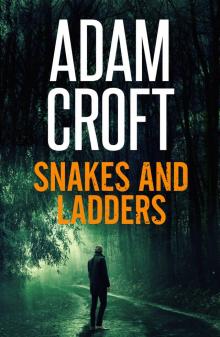 Snakes and Ladders
Snakes and Ladders With A Vengeance
With A Vengeance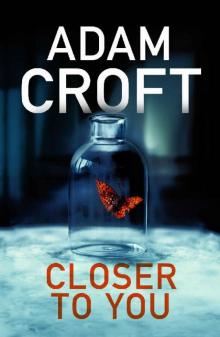 Closer to You
Closer to You In Cold Blood
In Cold Blood Tell Me I'm Wrong
Tell Me I'm Wrong![[Knight and Culverhouse 09] - In Plain Sight Read online](http://i1.bookreadfree.com/i/03/16/knight_and_culverhouse_09_-_in_plain_sight_preview.jpg) [Knight and Culverhouse 09] - In Plain Sight
[Knight and Culverhouse 09] - In Plain Sight Dead & Buried
Dead & Buried Too Close For Comfort
Too Close For Comfort What Lies Beneath (Rutland crime series Book 1)
What Lies Beneath (Rutland crime series Book 1)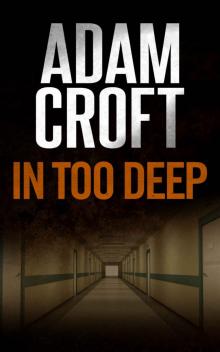 In Too Deep (Knight & Culverhouse Book 5)
In Too Deep (Knight & Culverhouse Book 5) Gone
Gone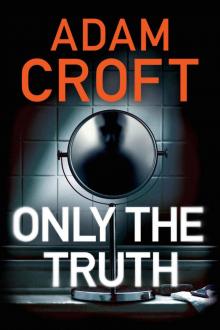 Only the Truth
Only the Truth Kempston Hardwick Mysteries — Box Set, Books 1-3
Kempston Hardwick Mysteries — Box Set, Books 1-3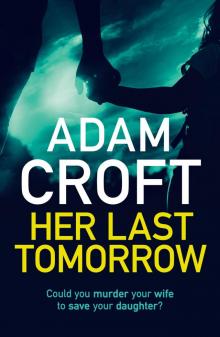 Her Last Tomorrow
Her Last Tomorrow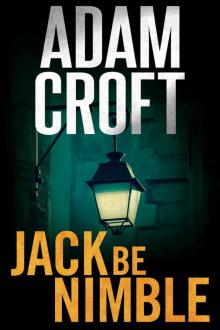 Jack Be Nimble (Knight & Culverhouse Book 3)
Jack Be Nimble (Knight & Culverhouse Book 3) Rough Justice (Knight & Culverhouse Book 4)
Rough Justice (Knight & Culverhouse Book 4) In the Name of the Father
In the Name of the Father In Her Image
In Her Image The Thirteenth Room (Kempston Hardwick Mysteries Book 4)
The Thirteenth Room (Kempston Hardwick Mysteries Book 4)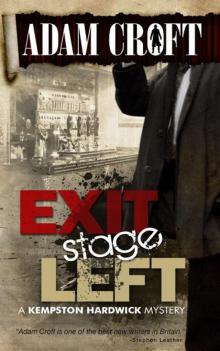 Exit Stage Left (Kempston Hardwick Mysteries Book 1)
Exit Stage Left (Kempston Hardwick Mysteries Book 1)